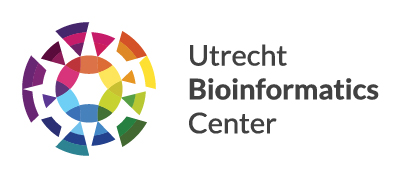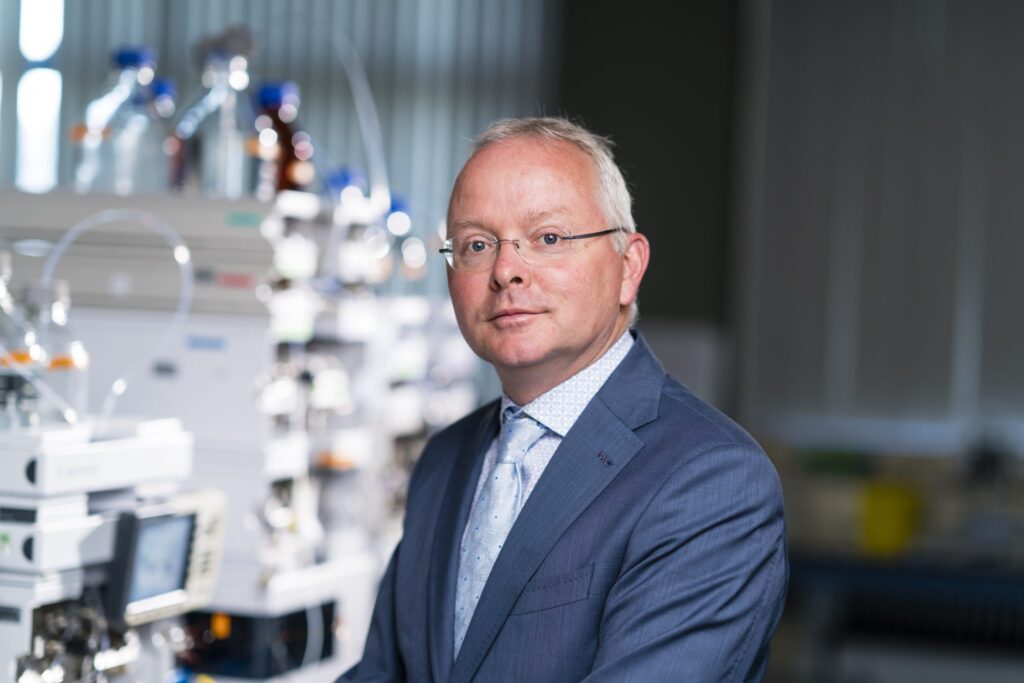“I want to know how life works at the molecular level. There are many molecules in our lives that plat an important role. I have been focusing on proteins which are major constituents of our body. The working horses of everything that’s going on in our body.”
The fascination of working together
“When I started to do my research in Utrecht it was not called proteomics yet, the methods to sequence with mass spectrometry were just in their infancy. It was very hard to identify one protein, it took about one day. And in the years that I have been in Utrecht, both through our own and international efforts, this sequencing of proteins by mass spectrometry has become so efficient, sensitive and fast that we can sequence thousands of proteins in a proteome within a few hours. In this way my expertise developed from proteomics to mass spectrometry proteomics.”
‘What we try to do in our lab is to identify proteins in our body and there are many; even more than 20.000 different ones. To identify them you have to sequence them. By being able to do that we could change our studies from a single protein to studying a protein in the context of all the other proteins. That really started my fascination.”
Sitting on a protein in a cell
“My dreams are not limited to my own technology. Ideally I would like to sit on a protein in a cell and just look around me and see what this protein is doing with all the other proteins and all other biomolecules in the cell. So I could really see how it is behaving. Like I was watching an individual in society and see how this individual is acting based on a genetic background but also because of its interaction within the other people in the society.”
“For proteins I want to see how they act in the context of their environment and for proteins that context is the cell. We are now slowly getting able to study that in experiments with mass spectrometry.”
Changing boundaries of research
When asked for practical purposes of Proteomics Albert tells: “I do understand that people like to hear about short term deliverables, but I am a bit sceptic about that. Even the big Dutch health care charities, such as KWF and Hartstichting, want to fund more translational research that the patient can benefit tomorrow. But we have put billions in cancer, but there is still no real cure for it. So don’t expect me to give a cure for cancer tomorrow. Ultimately it is not about tomorrow but the generation after us and to help them. I have more faith in my own approach: work on changing the boundaries of what can be studied in the mechanisms of diseases; how are they originating and developing. I think the real cure for diseases never will be there, but if we understand them better we can manage them better. This is why I think that the fundamental research and long term perspective for medical help is still underestimated.”
Heavily relying on bioinformatics
Mass spectrometry resulted in a big step forward in proteomics. Albert explains that his whole research heavily relies on all kind of informatics and bioinformatics. “Bioinformatics comes into proteomics in many ways. Our typical experiments don’t stop when we have the mass spectrometry data, they only start then. Nowadays it takes a week to measure data, and it still takes like two-three months to analyze the data to a point where you can really say: now I have the biological information that I am interested in. So we generate big data sets. Handling these data sets, stewardships and storage, that is part of IT. But to study how proteins work together we are talking about network interactions, different layers of interactions that require all kind of bioinformatics. Modelling and fitting data, to existing literature and present knowledge. So bioinformatics is an essential part of doing proteomics research.”
Integral part of Utrecht Bioinformatics Center
Every researcher in my group needs to be able to do some programming and must understand informatics papers to some extent, but they are no hard core bioinformatician. They need to know much more because they also have to grow cells, do the analytical measurements using the mass spectrometers and also understand the mass spectrometers. Saying that, I must tell that 5 to 10% of the employees in my group are purely working with data. That are the bioinformaticians in the group. We also have some employees who write algorithms and a colleague who does all the data storage and all the software analyses of programs that we develop and write scripts for. We even have our own IT specialist in our group because our work is computer based. That is why proteomics research is an integral part of the Utrecht Bioinformatics Center.
In my research group, we like to work together with researchers in different disciplines. What is so nice about the Utrecht Bioinformatics Center is that it focuses on information driven research. Within the UBC we can easily meet with people who may have similar questions that we have in proteomics, but study genomics, metabolomics and bioinformatics. The UBC community is exactly what a successful data driven Life Scientist needs.
Too curious for one research question
How does Albert find a clue to new knowledge to make that big step forward? “First of all, I am a technology oriented person. That means that I do not focus on one biological research question, I am too curious for that. I sort of jump from one research question to the other. It is interesting to look at an old problem that people think is all solved. If you look at it with a new tool you’ll find new things and understand that nature is slightly different or even completely different from what we thought before. I feel excitation when we have new tools developed, for instance to look at protein phosphorisation. Ten years ago this was very difficult and the interesting thing is that we have a new technical tool which makes it very easy. Then I make a side step and try to use that same method to look at how cells are reprogrammed from stem cells to differentiated cells and I also try to find out how grass adepts to salt or how bacteria adept from night to day.And then it does not matter that much what the question is, you always learn more about how the world around us functions at a molecular level.”
Reach out for the uneasy
What drives Albert, resulting in such a successful career?
“To young scientists and students my advice is to not give up quickly. Reach out for the thing that makes it easy to work hard for and probably seems uneasy to obtain. Too many people want the term at the end of the day. They want to be successful in the afternoon. I think it’s way more rewarding if you have to work for something for six months or even five years and you get a big benefit. That is so much better than being disappointed at the end of a day because a small thing you tried to achieve didn’t work.
So I think you do not have to define your own goals. Just go for the opportunities that are out there, and when you do go for it with your whole heart and trust your gut feeling. For me this worked out great. I am a very happy man.”

